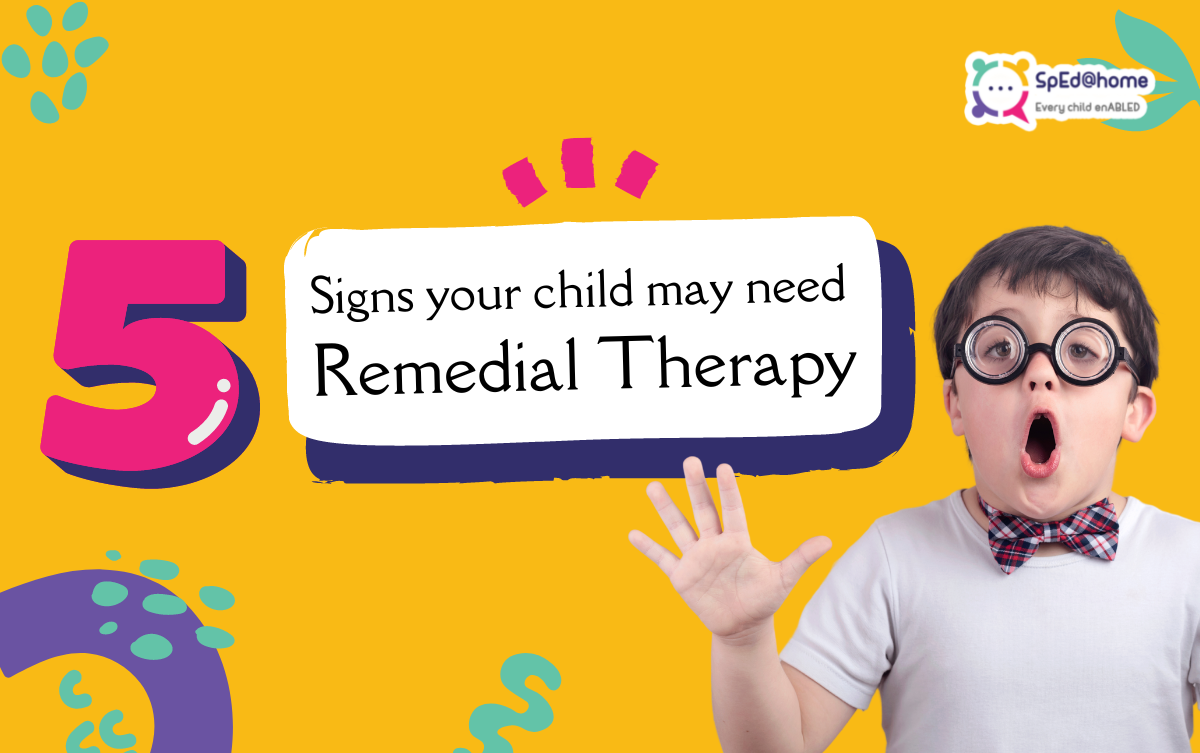Often times it is observed that developmental problems are not detected as quick as a physical disability. However, if detected early, learning disabilities can be managed and children can go on to lead high functioning, independent lives.
Read on for five main indicators to look for to determine whether your child needs Remedial Therapy.
Hyperactivity or Attention deficit: Symptoms like short attention span, making careless mistakes in class work, inability to follow instructions, leaving work incomplete, procrastination, losing things, easily distracted, bad memory, hyperactivity, impulsivity, extreme fidgeting etc are all early signs of ADHD and its variation- combined ADHD. By detecting it in time, Remedial Therapists can create a unique program that benefits the child in his most important years.
Autism: When a child doesn’t show any signs of speech by 16 months or displays poor eye contact and lack of response when they are called by name, it is likely that they are showing early signs of autism. Other symptoms include wanting quiet, repeating their actions, lack of conversation, strange language patterns, and inability to fit in with their peers. Consulting a Remedial Therapists can help detect the severity of the child’s disorder and help create a strong support system to help them develop into a high functioning individual.
Dyslexia: Dyslexia symptoms include difficulties pronouncing and rhyming words, trouble with vowels, and switching syllables. Talking to a Remedial Therapist can help understand and find solutions to the unique problems faced by a child.
Language learning disabilities: Children who struggles with pronouncing words and forming sentences are at a risk of developing issues while learning to read. One way to monitor their language skills is by keeping watch oh their reading development by keeping in touch with their teachers in school to ensure they are reading at the right levels. If a language disability is detected, do not hesitate to speak to a Remedial Therapist who will design a program that helps your child navigate through language without being overwhelmed by it.
Learning disabilities: If it is observed that a child is not learning at the same level as their peers and is having difficulties recognizing shapes and letters, has trouble with writing, and has a small attention span, it is recommended that the child is assessed by a therapist to understand the underlying problem.
It may seem difficult to accept the conditions, pertaining to your child, discussed above. However, you can start with an assessment to have an answer to all your doubts. Remedial Therapy is not an overnight answer to your child’s learning difficulties. However, it is a great start into managing your child’s learning curve and keeping them from becoming too overwhelmed by the world.
Book a FREE Assessment.














